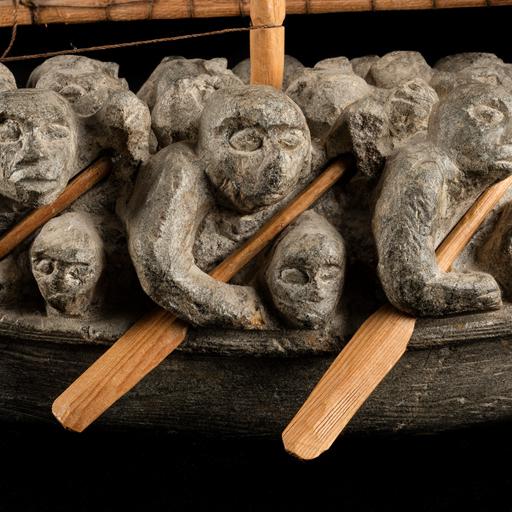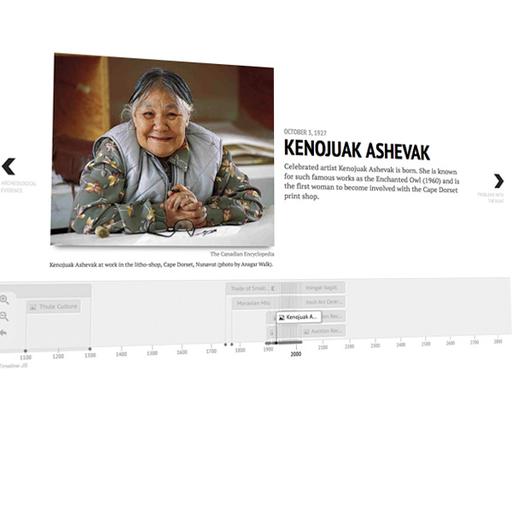
Diamonds of the Downtown Eastside
How a basketball team is uniting urban Indigenous women in B.C.
When the All My Relations team files onto the court, they bring with them a sense of connection, community and a sharing of culture. Ben Nelms/CBC
Reporting and writing by Bridgette WatsonPhotography by Ben NelmsMar. 31, 2022
It’s long past dinnertime on a cold weeknight in early March and the Capilano Reserve is dark and quiet, except at the rec centre where the lights, and the hip hop, are cranked. Clusters of young men shoot hoops on a well-waxed court and as Cardi B raps above the din of dribbling, the All My Relations female squad files in.
Fourteen accomplished Indigenous athletes make up the team, many of them living in Vancouver’s Downtown Eastside, and they range from 17 to 40 years old. They’re here at the Chief Joe Mathias Centre on Squamish territory to scrimmage against the local men and get ready for the All-Native Basketball Tournament in Prince Rupert that runs April 3-9.
The tournament has been running since 1960 and, each year, it showcases dozens of First Nations teams from B.C. and Alaska as they battle for bragging rights.
The pandemic meant the event was cancelled for the first time in six decades last year, and now the All My Relations (AMR) women are going hard in the paint to make up for consecutive seasons of restricted court time.

While most players at the tournament are there to represent their First Nation, the AMR players — many of whom are single mothers and students — come from various First Nation communities, but they live, work or volunteer in this notoriously impoverished Vancouver neighbourhood. Many of the players say that being part of this team is about more than just basketball: these women are connected by their shared love of the game, but it’s also a space to share culture.
A connection to culture
“It’s like medicine for us,” said Camellia Brown, 30, a post and outside shooting threat recruited from Vancouver’s Native Education College 10 years ago.
For Brown, now a first-year electrical apprentice, the squad is a connection to her First Nations community, a sentiment echoed by teammates.
Living off-reserve in a colonial city can make it harder to access that sense of connection, and an isolating global virus didn’t help things.
Brown, who is Nisga’a and Gitxsan, spent much of her childhood in foster care and said she has only been to her matrilineal village of Laxgalts’ap, also known as Greenville, B.C., in the Nass Valley a handful of times.
She does have early memories of watching her older sisters shoot hoops, though, and says she gets the same thrill playing with her AMR sisters now.
“I didn’t get the chance to really grasp my culture, I kind of grew up in the city,” she said. “I’m still learning about a lot of my family.”

Greenville has a women’s team in the tournament. Brown said she is looking forward to meeting relatives in April and getting to know them better.
Basketball tournaments have a longstanding history of uniting Indigenous people in B.C. Before the All-Native tournament began, the Northern British Columbia Coast Indian Championship was held in the 1940s and ‘50s. Potlatches were banned in Canada then, and, at a time when leaving your reservation required a government pass, the tournament was a way to connect.

Tonight, it feels like a family affair here in the gym.
Some of the AMR women are cousins and there are father-son duos on the court, too. There’s also chatter about the competition up north, which includes some teams made up of immediate family members among their starting five.
“I’ve played against a mother-daughter duo and they were my first sprained ankle,” says post and team organizer Joleen Mitton, laughing at the memory while resting between shifts on the court.
Basketball is ... kind of like our ceremony. It’s unifying.
Joleen Mitton

Mitton, 38, handles the bulk of the team’s public relations, fundraising and scheduling. This year, AMR wooed reputed head coach Pam Baker, who cut her coaching chops at the YMCA in Los Angeles. But in past seasons, Mitton has sometimes done double duty as coach and player.
The former fashion model speaks about each player like a proud parent. Many of them she recruited and, at some point, every woman interviewed would stop and praise Mitton for bringing them into the fold.
Mitton, who is Cree from Alberta, had surgery during the pandemic to remove more than 20 stomach tumours. She says it’s been tough coming back after health issues, but basketball feels like home to her — and there was no question of walking away.
“Basketball is like church for me or going to the Big House [for ceremonies],” says Mitton. “This is kind of like our ceremony. It’s unifying.”

What also unites the women is their common goal of improving lives in the Downtown Eastside, whether that’s coaching kids or doing outreach in a community where Indigenous people are disproportionately represented.
Marnie Scow, 34, from Tsakis Village of the Kwakiutl Band and Kwakwaka’wakw Nation on Vancouver Island, works in public health and harm reduction. This includes helping Indigenous people struggling with mental health and addiction to access their culture by bringing ceremony to them, if need be, such as smudging spaces if someone has passed away, or bringing drums and regalia to back alleys and street corners.
She says her lived experiences make her the right fit for the job.
A multi-sport athlete growing up, Scow’s parents instilled an early love of sports in her and coached many of her childhood teams. But addiction gripped her for years, after she was prescribed Oxycontin for a high school sports injury and then her mom and dad died after her graduation.
Finding sisterhood and safety on the court
Scow says her teammates never gave up on her. Sport continued to be the safe haven she needed.
“People who use substances are often pushed to the outskirts of society and there is a lot of stigma around it,” she says. “Being able to have somewhere where I can be myself and have that sense of community, and family, is something that I haven’t had for a long time.”
Now, she says, she is protective of the younger players and proud to offer them advice based on what she has been through.
“Part of being on this team is being a leader in the community and setting a good example for other Indigenous women,” Scow says.
Mitton says the team is so stacked with leadership it has no designated captain. That being said, when the women are on the court, Laura Lewis, 27, is the point guard calling the plays.

Lewis, who is Nisga’a on her mom’s side and Tsimshian, Tahltan and Tlingit on her dad’s, grew up on the Downtown Eastside; both her parents were ball players. She played for two B.C. colleges and was recruited to the team by Mitton.
“I refer to us as, like, the diamonds of the Downtown Eastside, because … we’re always under pressure, we’re always on the run, we’re always on the go, and yet we just want moments to shine,” Lewis says.
Lewis is always on the run, between working for the non-profit Nisga’a Ts’amiks Vancouver Society and basketball practice multiple times a week — but right now, her priority is bringing home a win.
“Once we’re on that court, man, like it’s all-out war.”
“I refer to us as the diamonds of the Downtown Eastside, because … we’re always under pressure ... and yet we just want moments to shine.
Laura Lewis

'A source of good medicine'
The women do battle for three hours during tonight’s practice, playing full-court and full-speed against rotating men’s squads until almost 11 p.m.
Vanessa Parnell, who is Haida, Tsimshian and Nisga’a, is the first AMR player to call it a night.
Parnell, 26, isn’t even playing this season, because she is getting married and is too busy with wedding prep. But she has played with the team for a few years and Mitton had instinctively reached out and asked her to come by, thinking she could use a hang with her homies.
“I definitely needed that,” said Parnell. “It’s such a source of good medicine for Indigenous women, like myself, who aren’t close to their communities. Being around good energy is good medicine for me and that’s what AMR is.”
A former Indigenous studies student, Parnell says she has thought a lot about the relationship between basketball and her people, and why it is such a central part of life for her and so many others.
“I feel like our people use basketball as a form of healing,” she says.
Parnell says it can be challenging to play on non-Indigenous teams because leaders in those organizations might not understand the cultural obligations of an Indigenous player — like having to go back to their community for a feast or funeral.
“Native basketball has that aspect of being able to understand what our responsibilities are, but also what our struggles are,” she says.
Parnell slips outside, cutting off the sound of Megan thee Stallion as the gym doors slam shut and all is quiet under the faint blue glow of the Lions Gate Bridge.
She’ll be back here soon, though — her wedding is taking place this summer right where the rest of the team is still at practice.
And, of course, her whole squad will be there.



